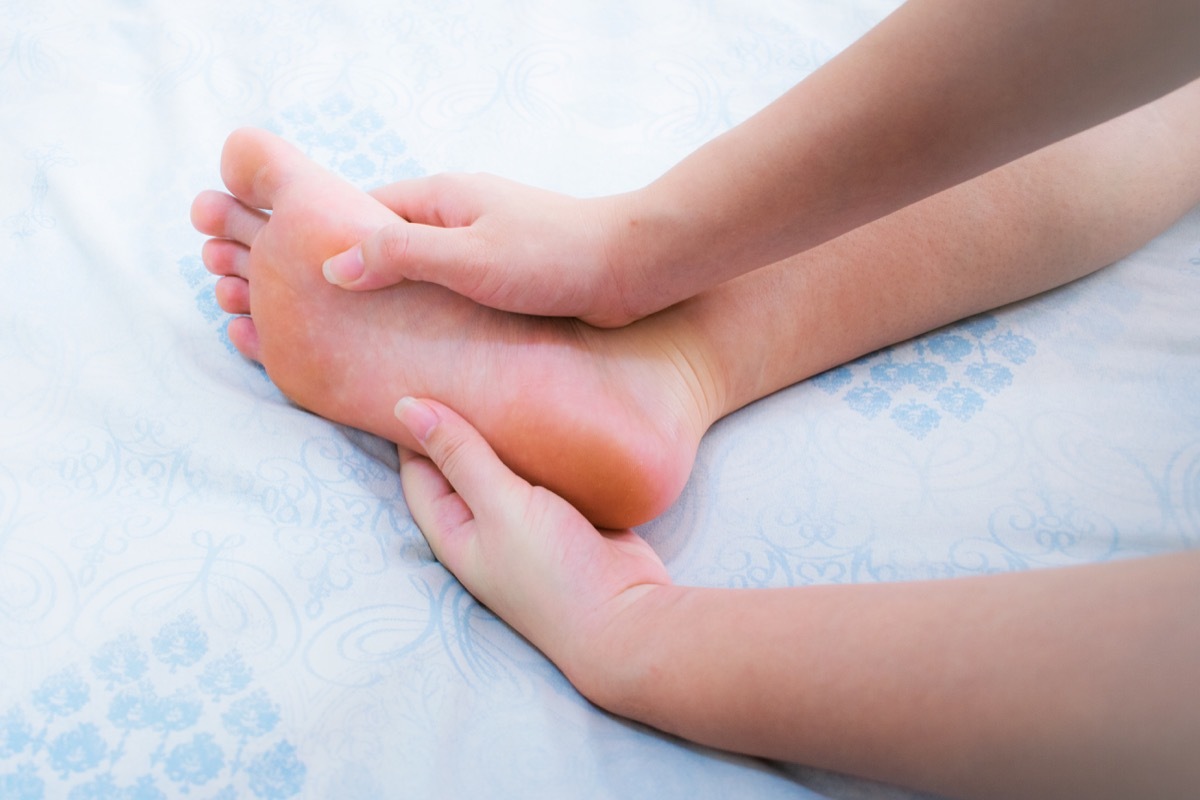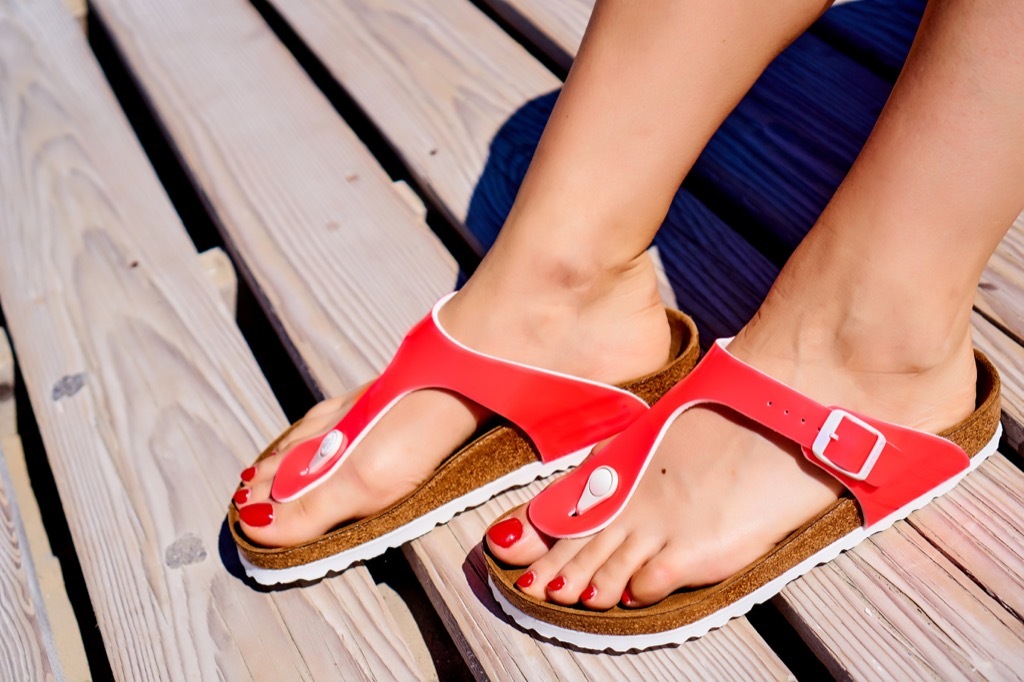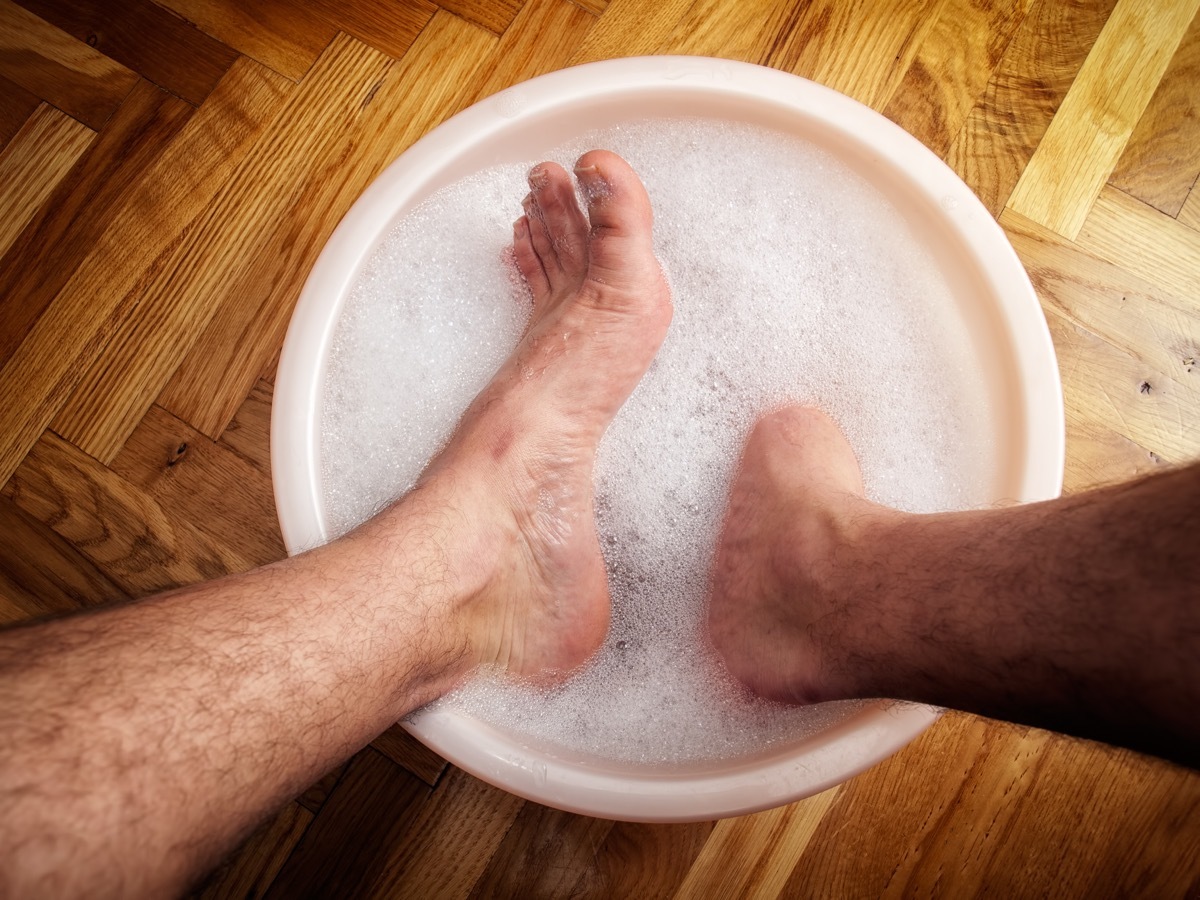If You Have Cracked Heels, Get Checked for These Vitamin Deficiencies
Here's what's behind this common—and painful—condition.

Neglecting your feet can have some uncomfortable consequences—and dry, cracked heels are one of the worst. While for some people the problem is merely cosmetic, for others, this particular condition can lead to infection and severe pain while walking. Surprisingly, experts now say that cracked heels can be caused by nutritional deficiencies—specifically, a lack of five essential vitamins linked to yourdermatological health. Read on to learn which vitamin deficiencies can cause this potentially painful foot condition, and how to heal your heels for good if it happens to you.
READ THIS NEXT: If You See This on Your Feet, You May Have Diabetes, Doctors Say.
Your cracked heels could have a range of environmental causes.

Most of the time, cracked heels are the result of the skin becoming overly dry and thick, thus forming fissures, the Mayo Clinic explains. While anyone can have cracked heels, certain environmental factors can make them more likely. In particular, you may develop the condition if you frequently wear sandals or other open-heeled shoes, take hot baths or showers, expose your skin to dry, cold weather, stand for long periods of time throughout the day, or use harsh soaps or detergents.
READ THIS NEXT: This Is the One Vitamin You Should Never Take, Doctors Say.
In some cases, vitamin deficiencies may be to blame.

Though most of the time, the factors contributing to cracked heels are environmental or behavioral, some cases are caused by underlying nutritional deficiencies. Individuals who are deficient in vitamin B3,asam lemak omega-3, vitamin A, vitamin C, and vitamin E are most likely to experience heel fissures, experts say. That's because in adequate amounts, these vitamins can benefit your skin by building collagen, preventing cellular damage, and retaining moisture.
If you've modified the environmental factors that could be causing your cracked heels and not seen significant improvement, a vitamin deficiency test may help isolate the problem. Speak with your doctor to find out whether a blood test may be right for you.
People with certain medical conditions are also more likely to have cracked heels.

In addition to environmental factors and vitamin deficiencies, experts say several underlying health conditions can make cracked heels more likely. For example, obesity is closely linked with heel fissures, since extra weight puts abnormal pressure on the feet while standing. Diabetes, underactive thyroid, eczema, menopause, and Sjögren's syndrome (a condition that stops the body from producing enough moisture) have all been linked to heel fissures. Having certain foot conditions—such as athlete's foot, flat feet, and heel spurs—can also make cracked heels more likely.
For more health news sent directly to your inbox, sign up for our daily newsletter.
Here's how to treat your cracked heels.

There are several things you can do to soothe your cracked heels, advises the Mayo Clinic. "Treat them by giving your feet a little more attention, beginning with moisturizing them at least twice a day. Look for thick moisturizers (Eucerin, Cetaphil, others). Some moisturizers contain skin-softening agents, such as urea, salicylic acid or alpha hydroxy acid, which may help remove dead skin," the health organization suggests.ae0fcc31ae342fd3a1346ebb1f342fcb
They also recommend soaking them in warm (but not hot) baths and cleaning your feet with gentle soap. Use a loofah or foot scrubber to remove dead skin from your heels, applying only gentle pressure. It's best to do a little at a time, rather than attempting to remove all of the dead skin in one day.
If your condition remains unchanged or worsens, be sure to ask your doctor about next steps. "If self-care measures don't help, or if your heels become swollen or inflamed, talk to your primary health care provider or a dermatologist," say Mayo Clinic experts. "You may need a prescription ointment with stronger moisturizers or a steroid cream to relieve inflammation. Your health care provider may recommend special bandages or a tissue glue to protect the skin and hold the edges of the cracks together, so they can heal."
READ THIS NEXT: If You Wake Up Often at Night, You Could Be Lacking This Nutrient.

Chase mengatakan akan menutup ATM lebih awal karena "kejahatan dan vagrancy"

